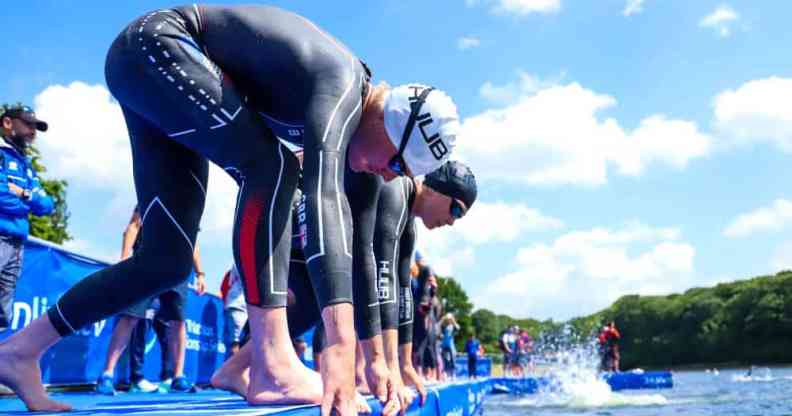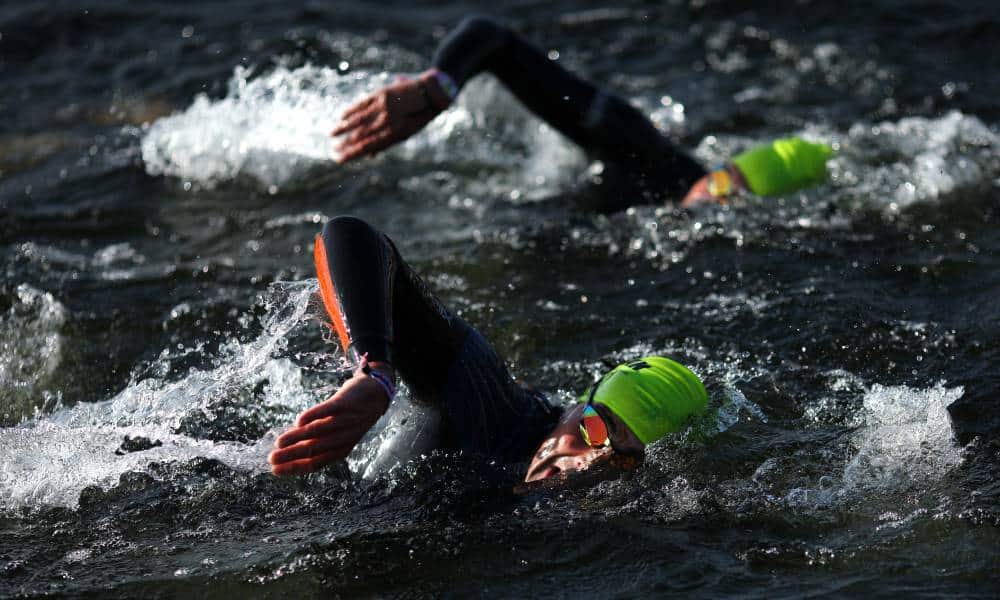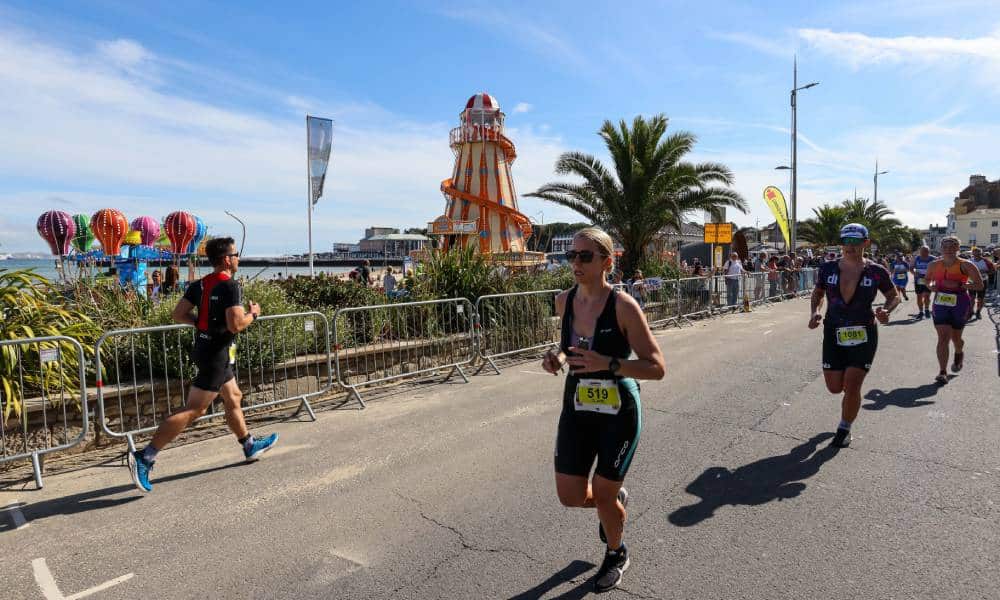British Triathlon bans trans athletes from women’s competitions and announces ‘open’ category

British Triathlon has banished trans women and non-binary athletes to a new “open category” after a “comprehensive” review of its trans eligibility policy. (Getty/Ryan Sonsa-Boyd)
British Triathlon has banned trans athletes from competing in the female category at an elite and grassroots level, creating a new “open” category.
Under a new policy, released Wednesday (6 July), trans athletes over the age of 12 will have to compete in an “open” category including all “male, transgender and those non-binary” athletes “who were male sex at birth”.
A second “female category” will only be eligible for “those who are the female sex at birith”. The policy – which goes into effect on 1 January – will apply to any race that is timed, has rankings or has prizes.
Additionally, only people who are assigned female at birth will be “selected for Great Britain, England, Scotland or Wales in International Events in the female category”.
The decision came after the British Triathlon Federation confirmed it had embarked on a “comprehensive” review of its trans eligibility policy in April.
The national governing body for triathlon, duathlon and associated multisport in Britain said the review included a consultation process with athletes, volunteers, stakeholders and professional bodies.
Announcing the new policy, British Triathlon chief executive Andy Salmon said the sport is “gender-affected” and that “fairness is paramount” where there is “competitive activity”, the BBC reported.
“We believe this is the right policy for triathlon in Great Britain, and the right time to publish it,” Salmon said. “We have taken legal advice and are confident it’s legally robust.”

British Triathlon’s Andy Salmon believes the new rules are the “right policy”. (Charlie Crowhurst/Getty for IRONMAN)
However, Salmon admitted he wasn’t “aware” of any elite-level trans athletes competing in triathlons in Britain, but he didn’t want the governing body to wait for “that to be a problem” before it “tried to fix it”.
British Triathlon said it does not “tolerate transphobic, behaviour, harassment, bullying or hate speech of any kind”.
The governing body asked people “commenting” on the policy to do so with “empathy and consideration for all of those who have been involved and who may still have questions and concerns about how the policy impacts them”.
The new rules will replace British Triathlon’s 2018 policy that allowed trans women to compete against other female athletes if they met certain hormonal levels.
Amy Gadd, triathlete and director of operations and direct service delivery at Mermaids, told PinkNews that British Triathlon’s new trans policy was devastating.
Gadd has participated in triathlons for seven years, and even shared how the sport has helped improve her mental health in an article for British Triathlon, published as part of LGBTQ+ History Month in February.
“As a trans woman who has participated in triathlons since 2016, I am extremely disappointed about being excluded from the female category,” Gadd said.
She continued: “The policy is supposed to be based on fairness and states that it ‘acknowledges each individual’s right to define their own gender, regardless of their sex at birth’ yet it does not recognise me as female when it comes to a competitive category.
“This only serves to segregate women and girls which is not good for anyone. I now have to make the decision as to whether I want to take part in a sport that doesn’t recognise me as a female.”

Amy Gadd, a trans woman who has participated in triathlons since 2016, says British Triathlon’s new policy “only serves to segregate women and girls”. (Getty/Huw Fairclough)
Reacting to British Triathlon’s new policy, a Stonewall spokesperson told PinkNews that inclusion should “always be the starting point” in sport.
They added everyone, including trans people, deserves the “benefit from the sense of wellbeing and community that sport brings”.
“The inflammatory rhetoric surrounding the issue of trans inclusion in elite competition only serves to perpetuate an atmosphere where trans people feel unwelcome to play community sport with friends, or go to the gym,” the Stonewall spokesperson continued.
“Trans inclusion in sport is a complex, evolving field that requires nuanced, evidence-based discussion.
“A discussion weaponised by those that seek the total removal of trans people from public life does not serve sport or trans people well.”
British Triathlon said the new policy followed a survey of 3,167 members that found 80 per cent were in support of the two categories. Only sixteen of the respondents said they identify as trans.
It added that it had more detailed discussions about the policy change with three trans triathletes.
The new policy comes just weeks after swimming’s world governing body FINA banned trans women who went through any of the stages of male puberty from women’s races. The new policy – which impacts Olympic events – was passed with a 71 per cent vote by FINA members.
The new rules do allow trans men to compete in men’s competitions.
Pro-LGBTQ+ group Athlete Ally denounced the policy as “deeply discriminatory, harmful” and “unscientific”.

